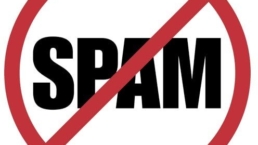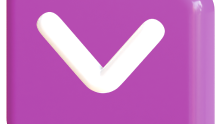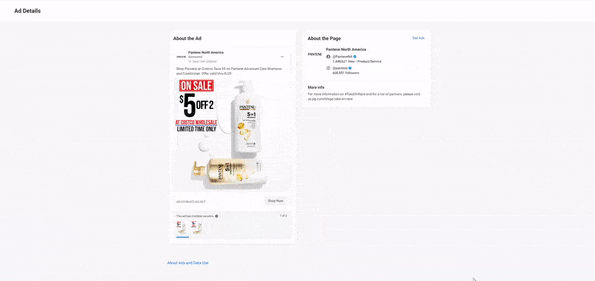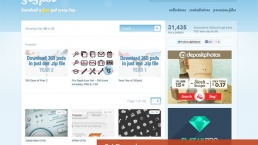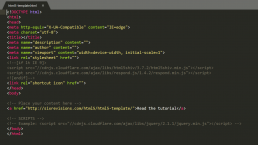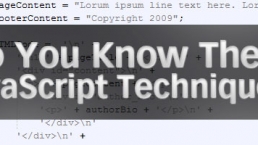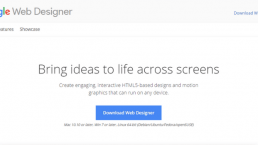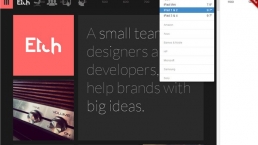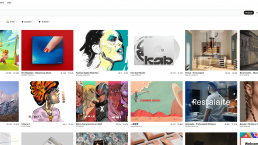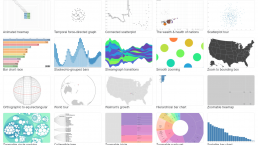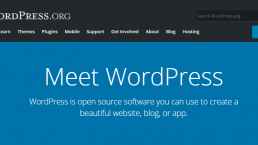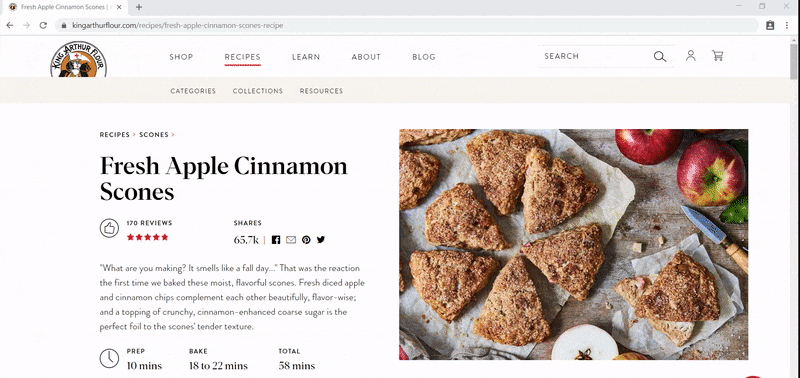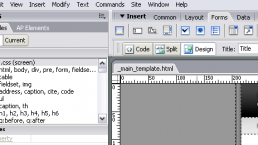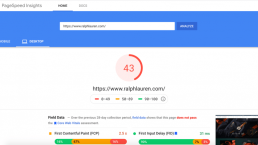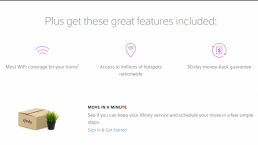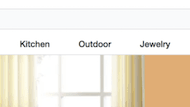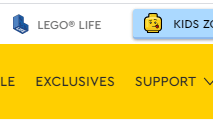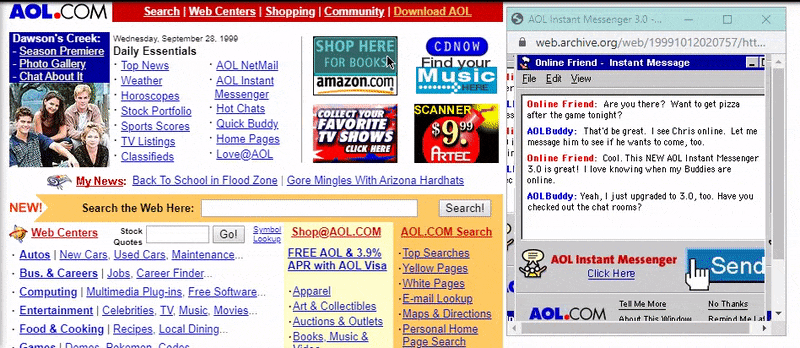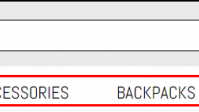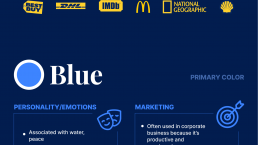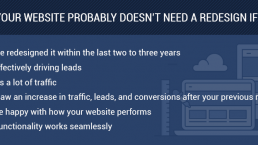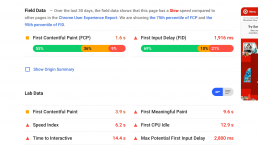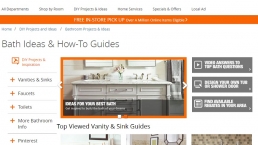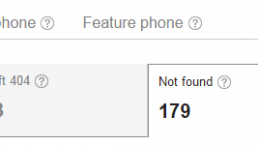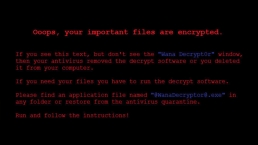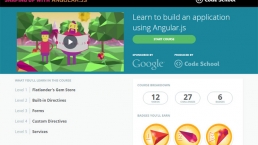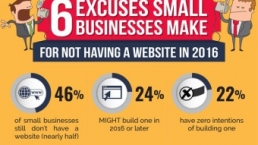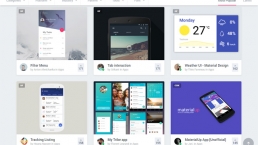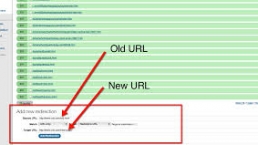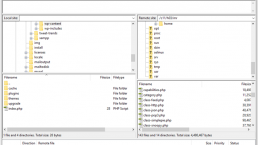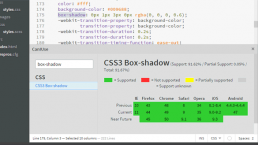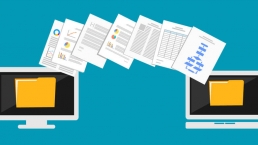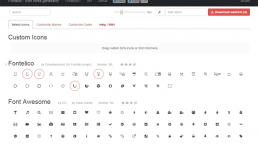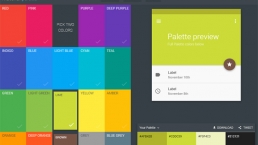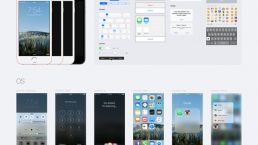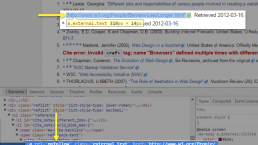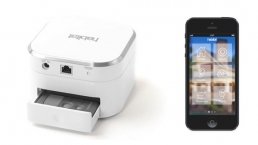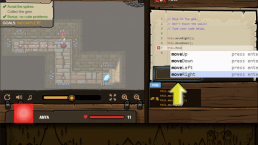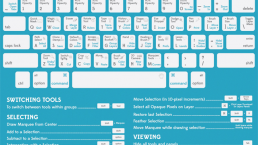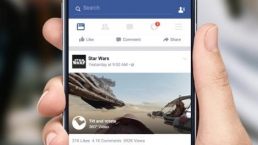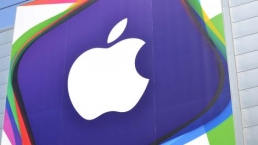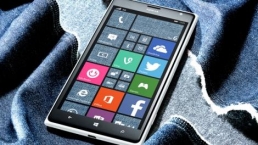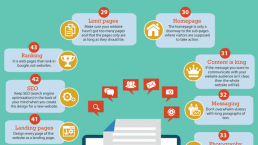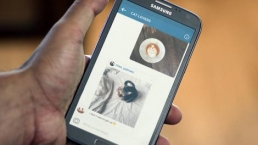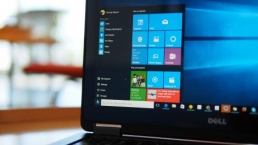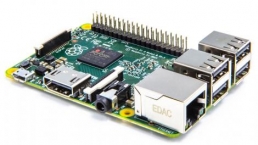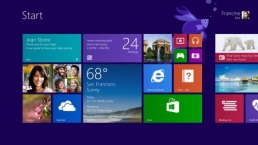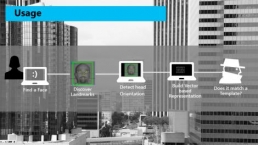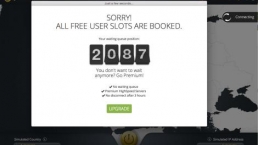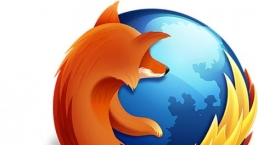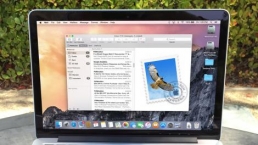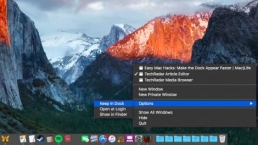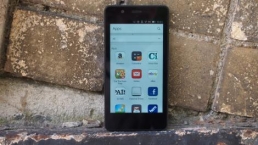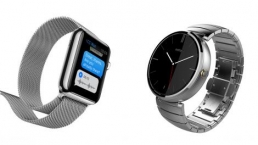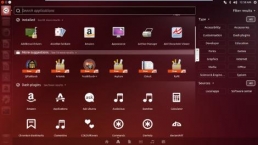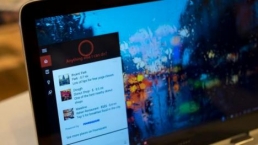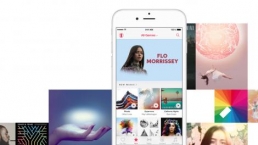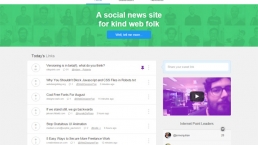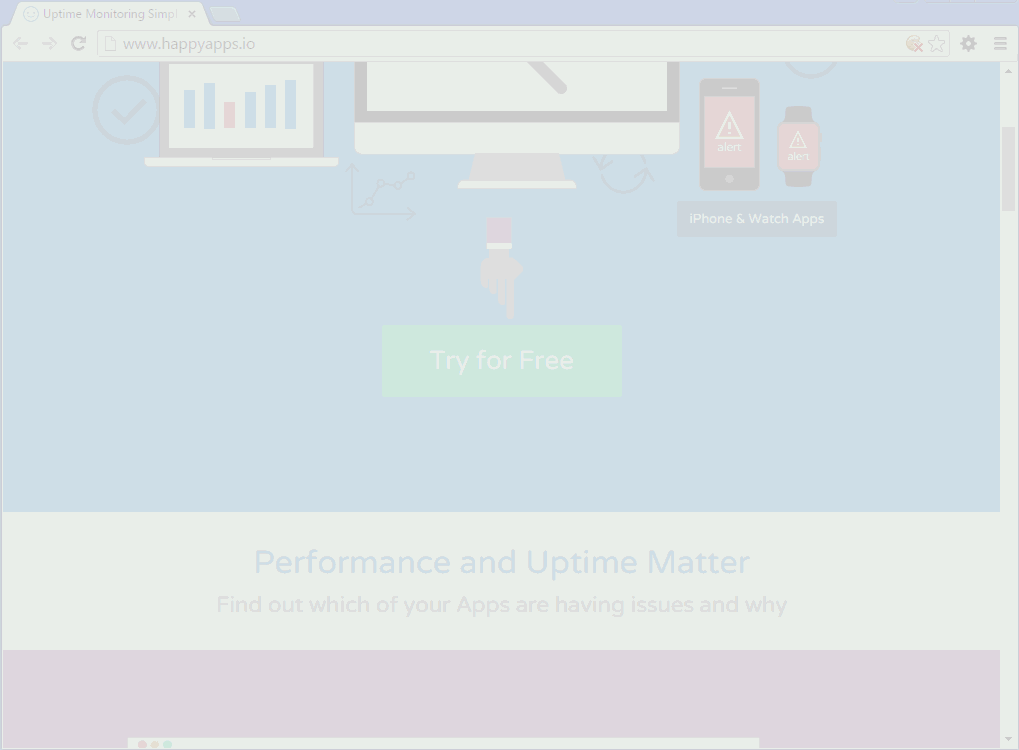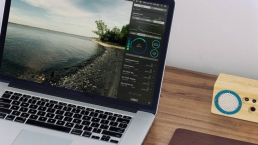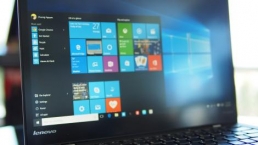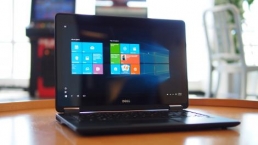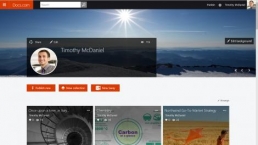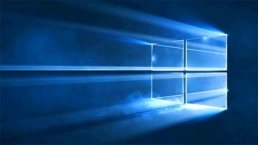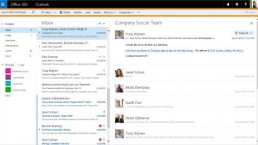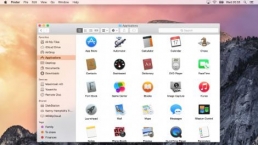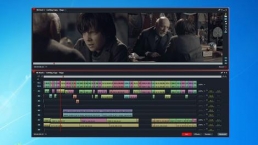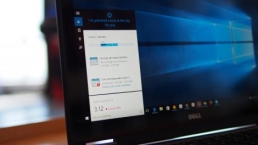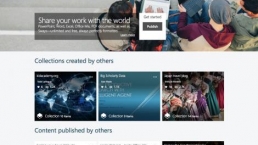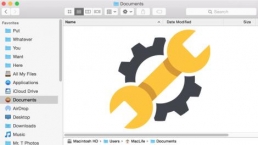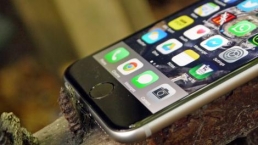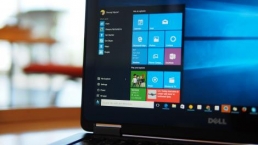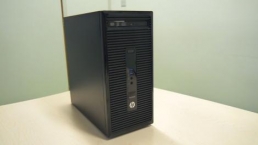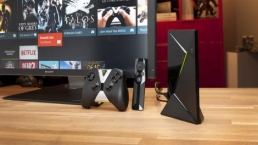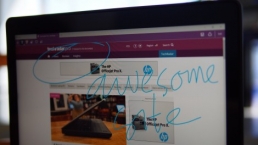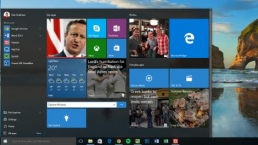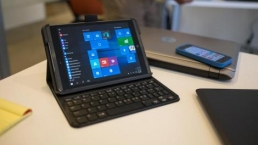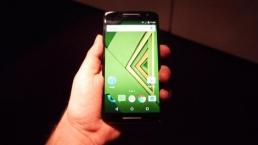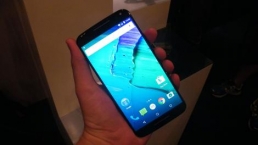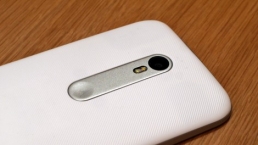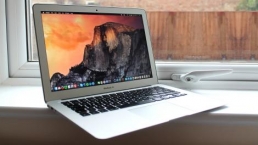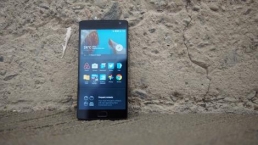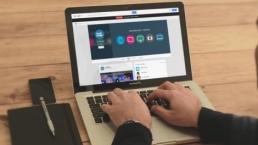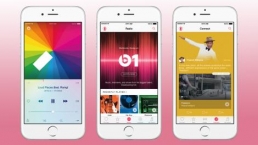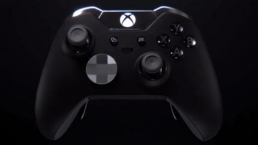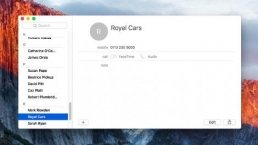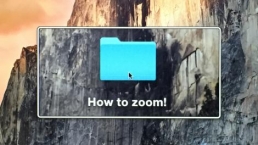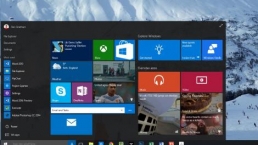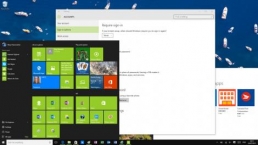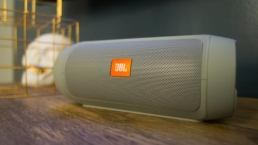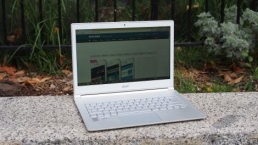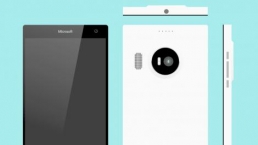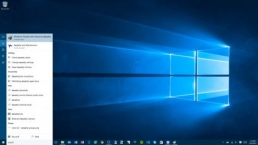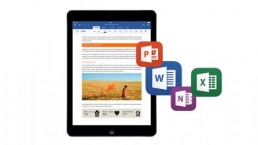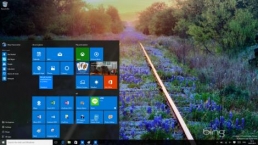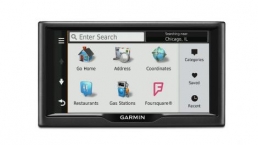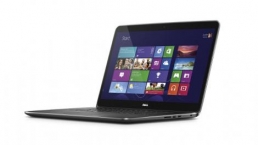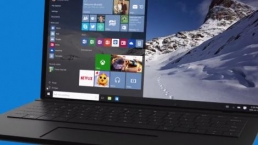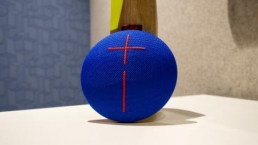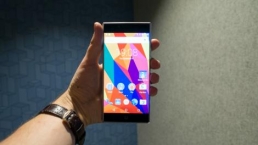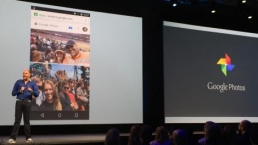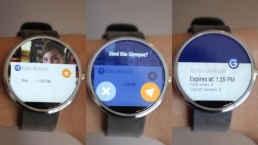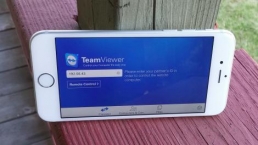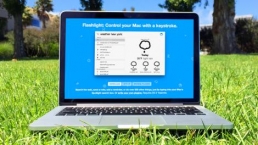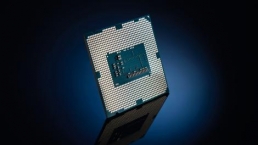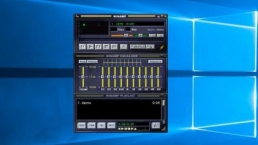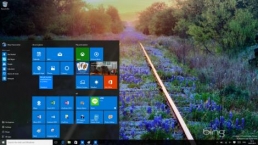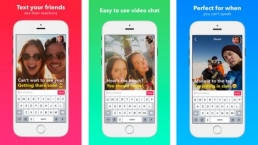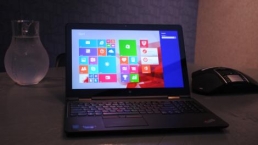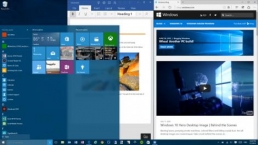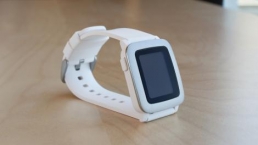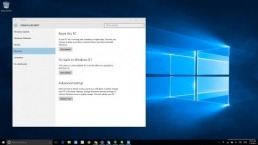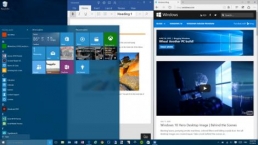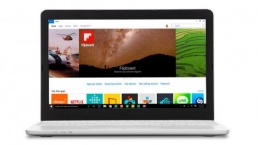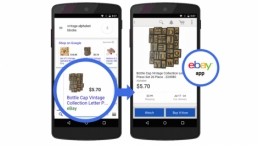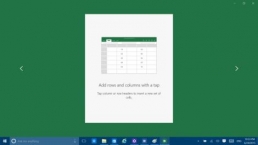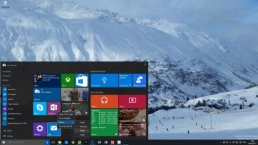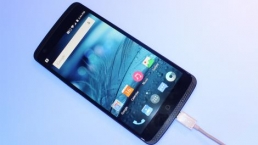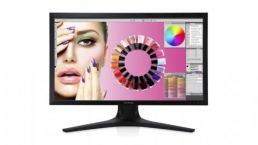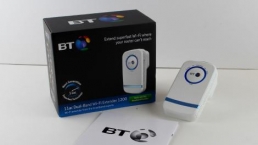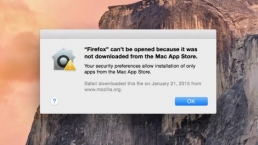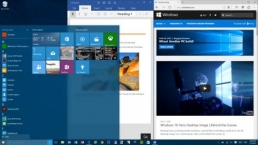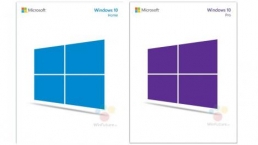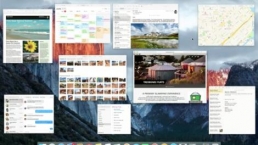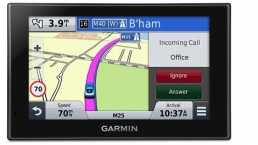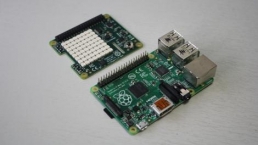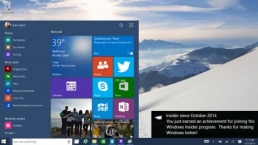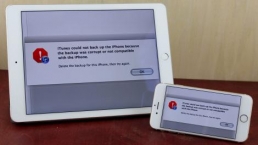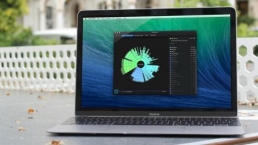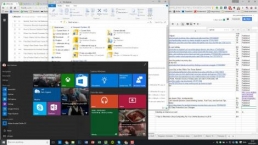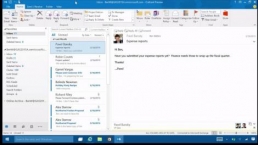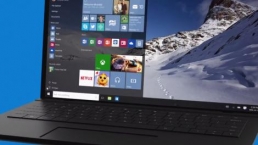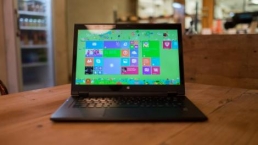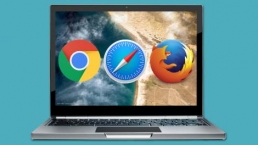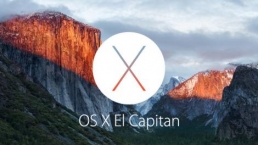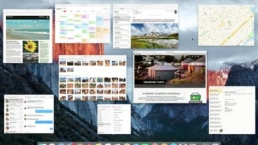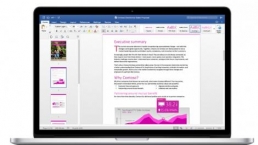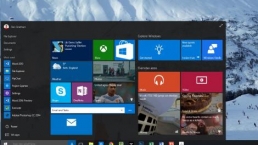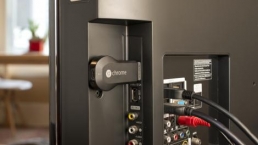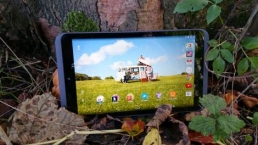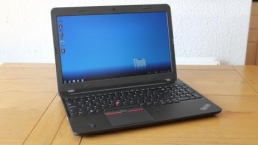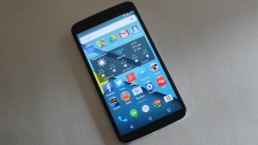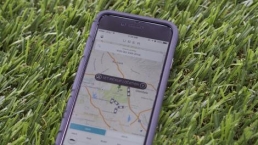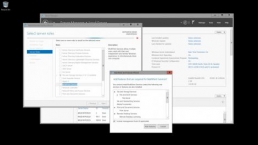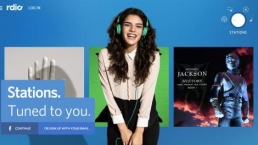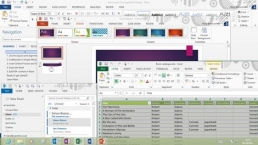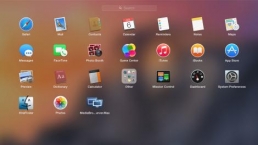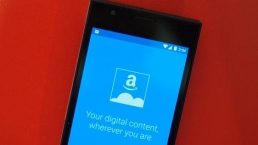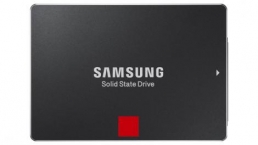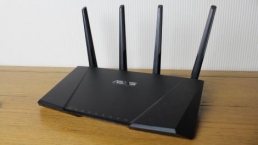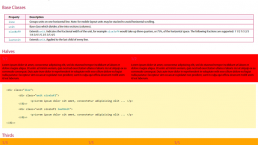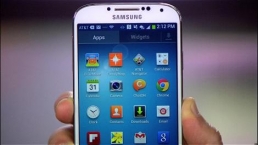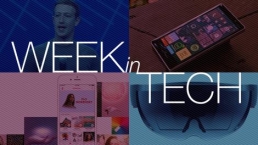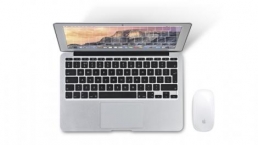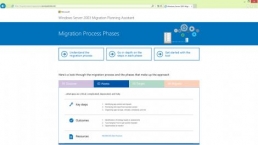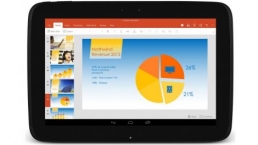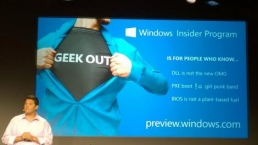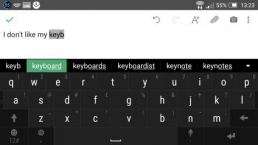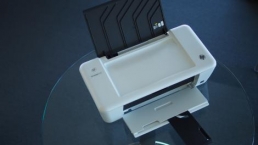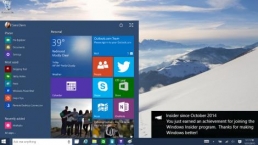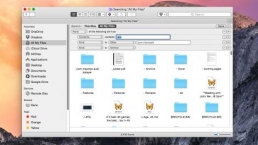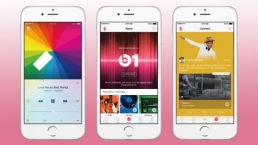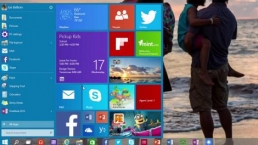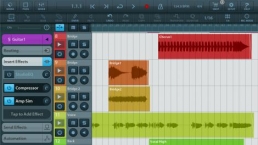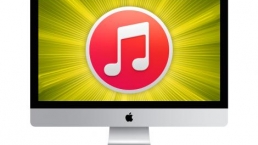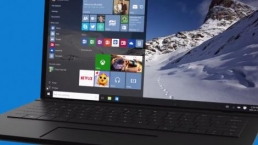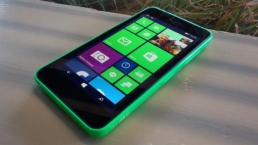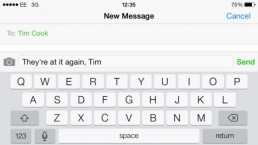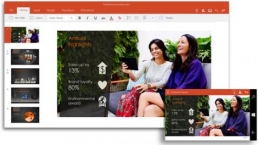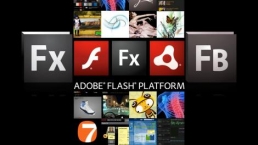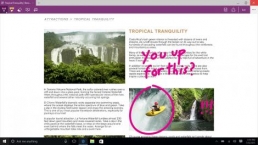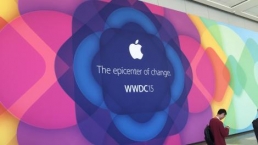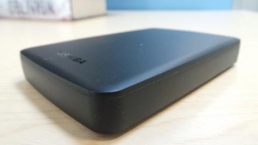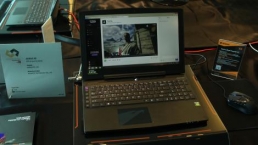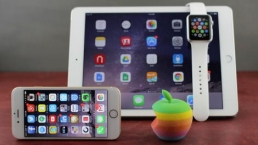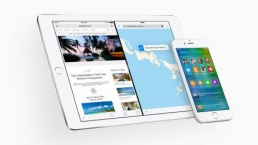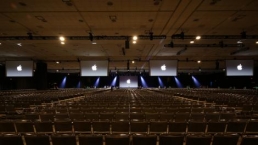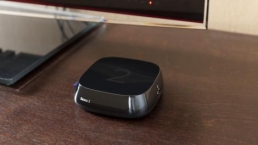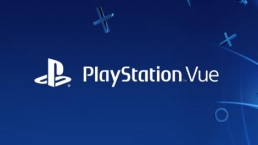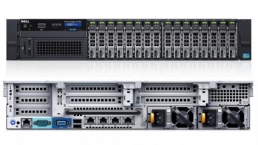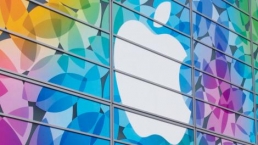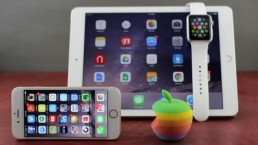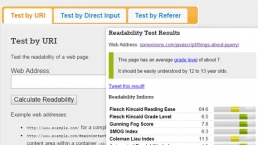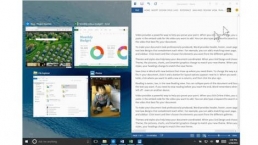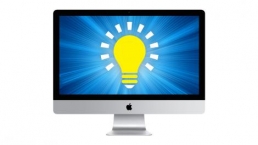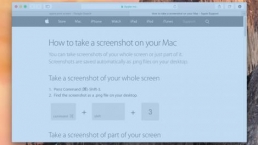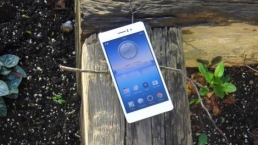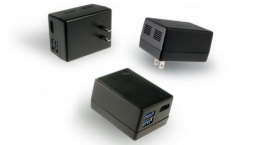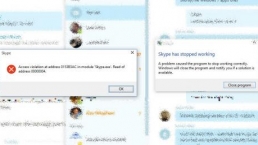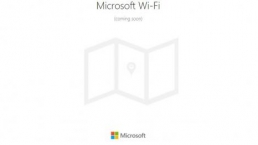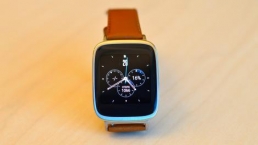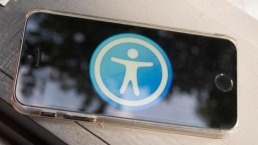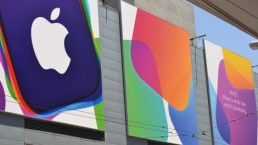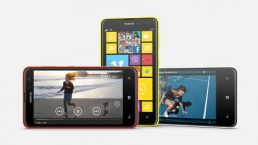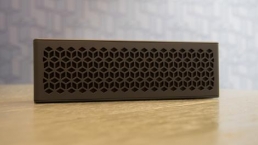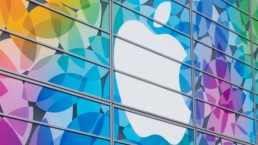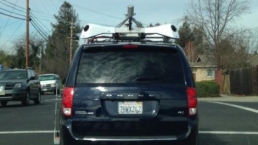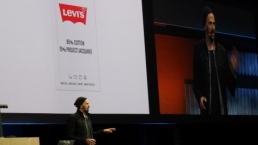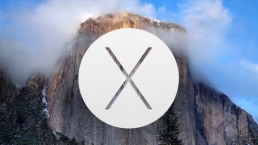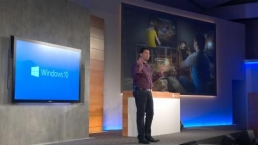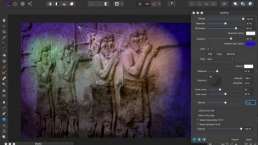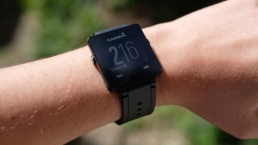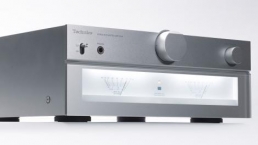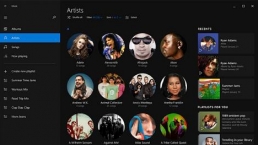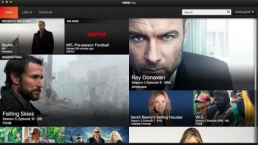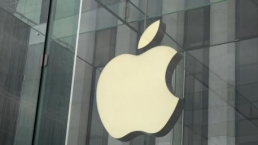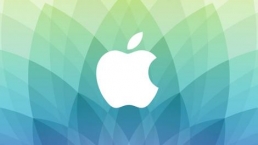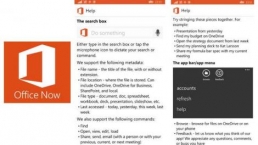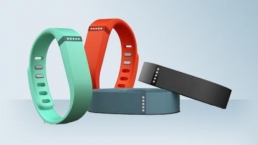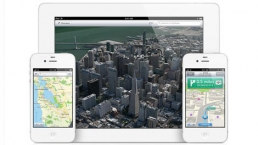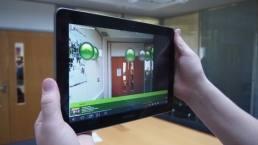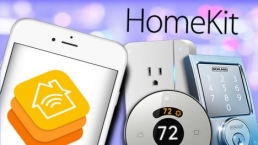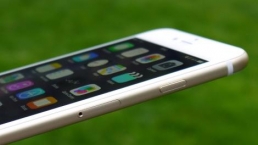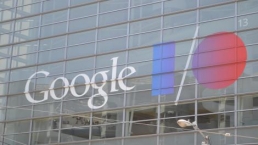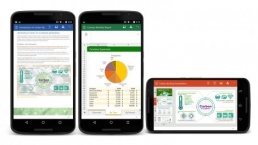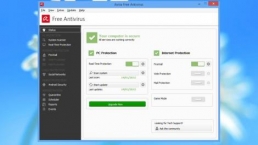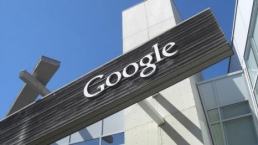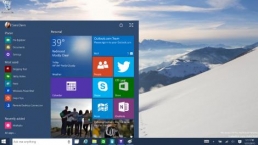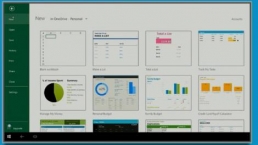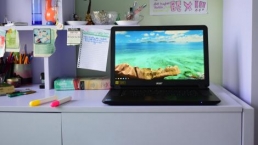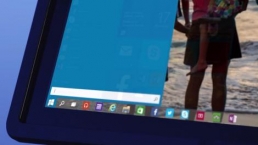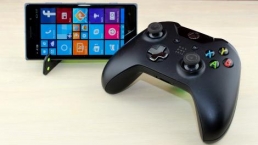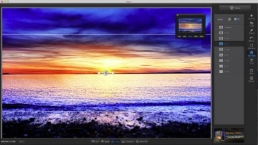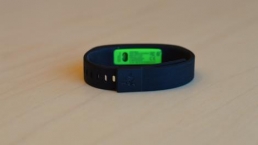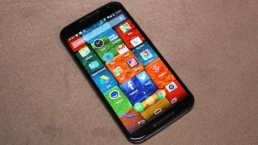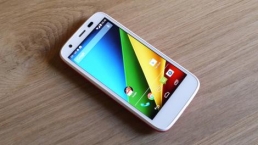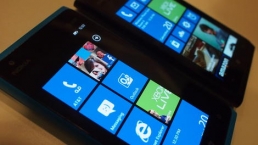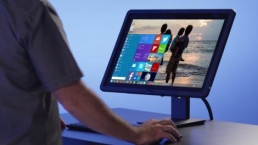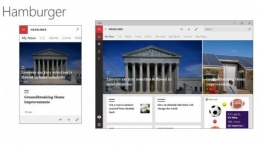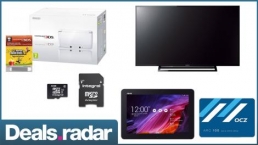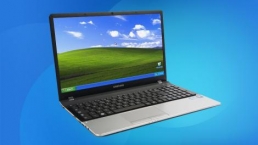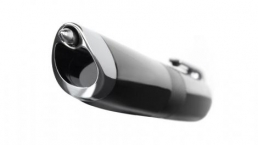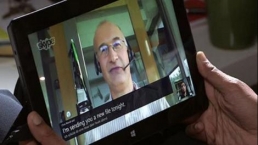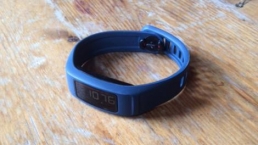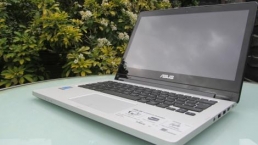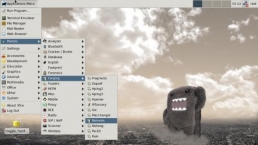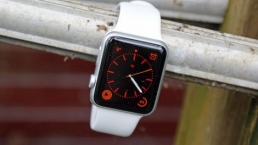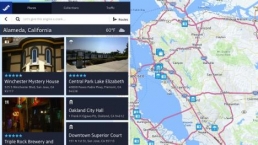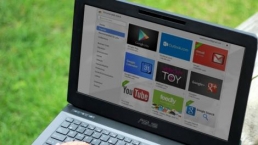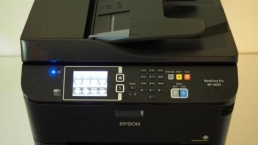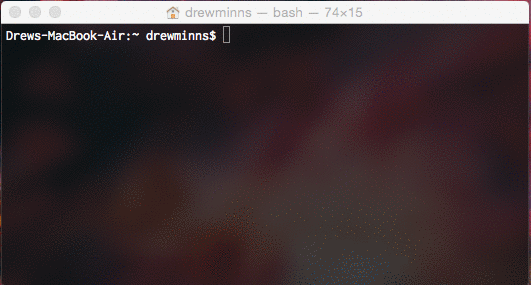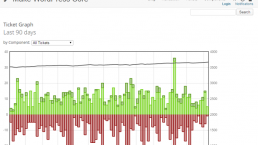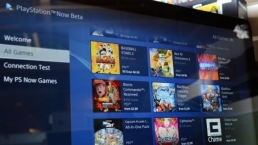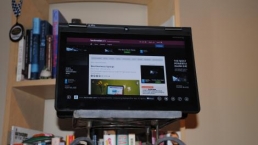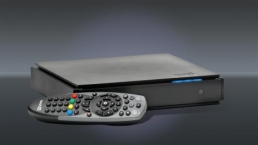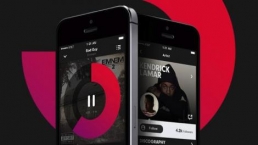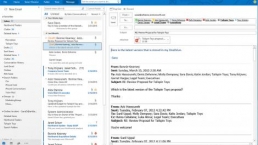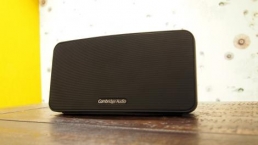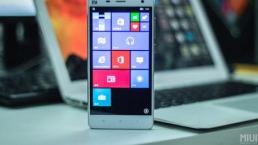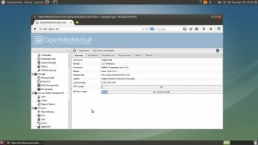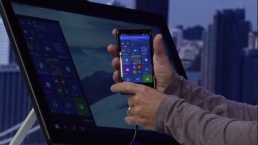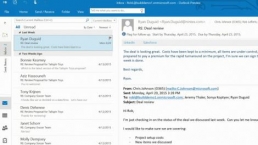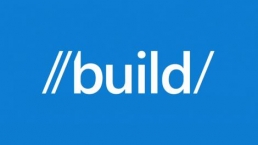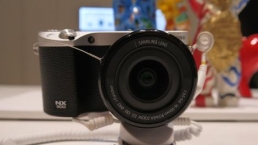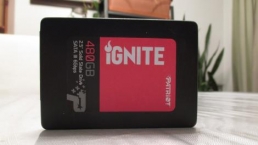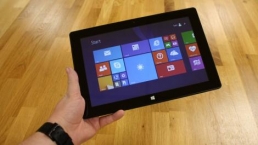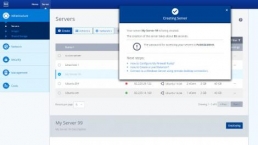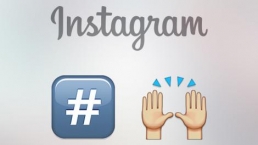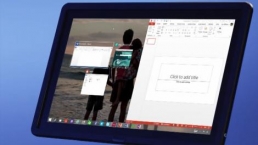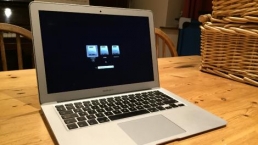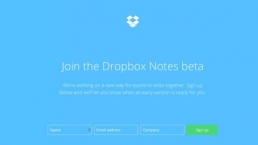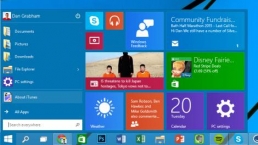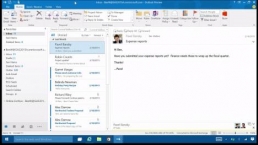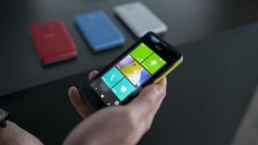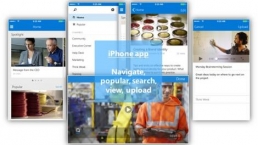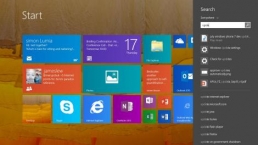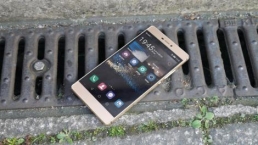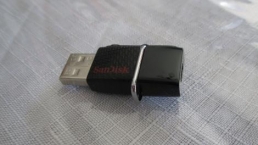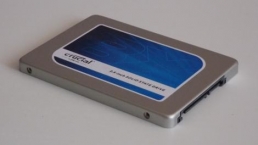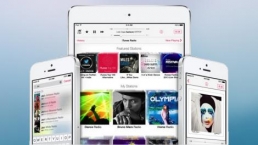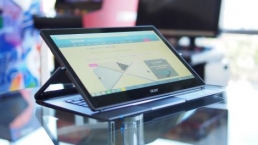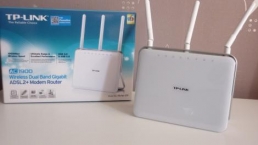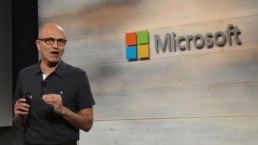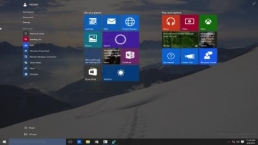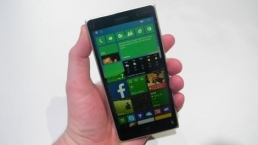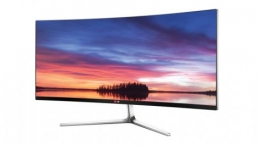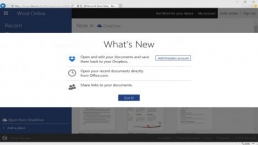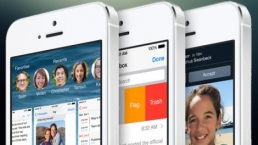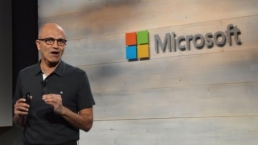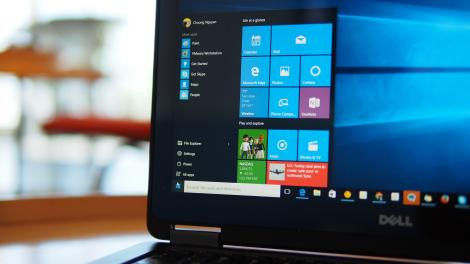
The essential Windows 10 info
Update: As of this writing, Windows 10 has been installed on a whopping 18.5 million devices,according to Neowin, debunking previous reports of download figures in the range of 67 million. Regardless, 18.5 million is no small number, and is likely only to grow from here. The question is: by how much and how quickly?
And in case you’ve been living in a cave, the verdict is in: “Windows 10 is the new Windows 7.” Read our full Windows 10 review right now.
Finally, if you want the highlights surrounding Microsoft’s big launch straight away, then just head to the “Latest developments” section at the end of this page.
Original article follows…
This is it, the dramatic climax to what Microsoft set out to do for computers over four years ago: Windows 10. The Redmond, Wash.-based firm’s first attempt to smooth over the inevitable collision of laptops and tablets, Windows 8, ended in what’s widely regarded as a flop. (And Windows 8.1 helped, but not much.)
But this time, things are different. Despite learning it the hard way, Microsoft has clearly gathered crucial feedback over the short lifespan of Windows 8 and turned it into what might be the firm’s most well-equipped piece of software yet.
YouTube : https://www.youtube.com/watch?v=qQmlJRrhSQk
Over the past nine months since its reveal, Microsoft cranked the proverbial feedback faucet and broke the handle in one of the most public software development phases to date, period: the Windows Insider Program. In fact, it’s still going on and will continue well past the general release for Windows 10. You can join up right here – 5 million have as of July 2.
Between that and several public events hyping the new operating system (OS) over the past year, Windows 10 has grown right before our very eyes. And now, Microsoft’s refined vision for the future of computing is prime for picking. In fact, until July 28 2016, Windows 10 is free for those upgrading from Windows 7 or Windows 8 devices.
Without further ado, here’s everything you need to know about Windows 10.
Cut to the chase
- What is it? A complete update for Windows
- When is it out? Upgrades are seeding out now – read the details below!
- What will it cost? If you’re on Windows 7 or 8.1 now, the upgrades is free for one year
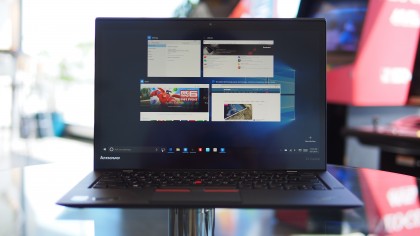
When is the Windows 10 release date?
Microsoft slated Windows 10 for a summer launch, and the company has stuck to its word. Following several leaks (and one giant snafu from retailer NewEgg) and a confirmation of its own, the OS launched in 190 countries on July 29.
That said, Windows 10 did not release for all device types on this date. Judging from comments made by Microsoft Corporate VP of Operating Systems Joe Belfiore, the company has planned a phased approach to the launch. Windows 10 will release for desktop, laptop and tablet devices first, then trickle down to phones, the Xbox One, Arduino machines and its own HoloLens.
Furthermore, Windows 10 launched on July 29 through the direct upgrade program and first to the 5 million-plus Insider Preview testers. It wasn’t until after then that the general public started receiving their reserved free upgrades.
If you’re looking to pick up a Windows 10 install on a flash drive (Microsoft’s method of choice for physical copies), these drives are available at retailers, like the Microsoft Store, immediately. (You could also pre-order your install drive and hope it arrives at your door on its recorded August 30 ship date, according to Amazon.)
Finally, if you just can’t wait, you can purchase a product key and download the OS starting on July 30. These latter two routes you’ll have to take if you’re not eligible for the free upgrade or want an additional copy. (More on that below.)
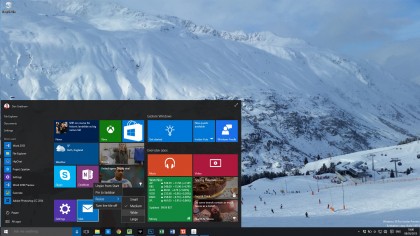
How much does Windows 10 cost?
For current Windows 7 and 8.1 users, Windows 10 upgrades downloaded directly from Microsoft will be free for one year, Microsoft’s EVP of Operating Systems Terry Myerson announced in January. After that period – for both product keys and standalone copies of the OS sold on those flash drives – the asking price starts at $119.
Not currently running a genuine version of Windows 7 or 8.1? Then the ticket to ride starts at $119 (£99, about AU$156).
If you’re not eligible for Microsoft’s free upgrade program – say you’re running a non-genuine Windows version or one older than Windows 7 – Windows 10 Home will cost $119 (£99, €135, about AU$156) and Windows 10 Pro will cost $199 (about £131, €178, AU$262) per license, Microsoft confirmed to TechRadar.
Windows 10 Home users who want to upgrade to Pro will have to pay an additional $99 (about £65, €88, AU$130) for the Windows 10 Pro pack. Unfortunately, Microsoft has been mum on exact Pro pricing for the UK and EU, while nothing has been said of exact Australian pricing.
Neowin reported back in February that Microsoft has trademarked the term “Windows 365,” supposedly with the intent of it being a service. The news and speculation has sent folks buzzing about the possibility of a subscription-based Windows service to come, though that’s not likely to be Windows 10.
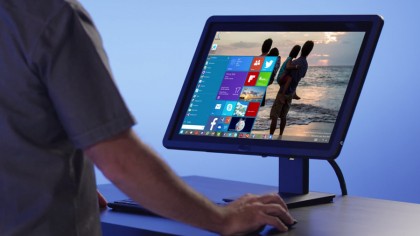
How can I upgrade to Windows 10?
Confirming the rumors and leaks leading up, Microsoft started the upgrade process for current Windows 7 and Windows 8.1 users weeks ago. If your machine is up-to-date, you should see a small icon of the Windows logo on your taskbar next to the internet status icon.
Clicking it opens a window that details the upgrade process and will allow you to “reserve” your free Windows 10 download by providing your email address. Presumably on – or in advance of, if you were lucky – launch day, Microsoft initiated the OS download to your device and will notify you when it’s ready to install.
What follows that prompt are a few bits of info to tease the new release and get users excited. It’s that easy.
If you’re at all confused about which Windows 10 version you’ll get, just look at which Windows 7 or 8.1 version you’re using now. That’s the equivalent Windows 10 version you’ll receive: e.g. Windows 8.1 Home users will only be able to upgrade to Windows 10 Home.
Better yet, Microsoft recently revealed through its most recent Insider Preview build that anyone who downloads and installs the Windows 10 upgrade has one month exactly to decide whether it’s a fit for them. If not, you will be able to revert back to Windows 8.1 or 7 with little trouble – just mind the date.
Plus, the company promises that it will support both free upgrades and purchases of Windows 10 with security and system updates “for the lifetime of those Windows devices.”
Microsoft recently clarified that statement with specific figures: Windows 10 will be supported with new features and updates until October 13, 2020. Extended support, e.g. security patches, will carry on until October 14, 2025. This seems to apply to both Windows 10 on desktop and Windows 10 Mobile.
Further updates are in the works (already)
Before Windows 10 has even launched, some of Microsoft’s upgrade plans for the OS have leaked. Most recently, Neowin reports that Wave 2 of Threshold, the long-standing codename for Windows 10, will land this October.
However, this update will reportedly focus on optimizing and stabilizing the operating system. If you’re already holding out for some major changes, or what’s missing from the initial release, expect to hold your breath for a bit longer.
According to an earlier Neowin report, the first major Windows 10 update will come June 2016 and the second in October of next year, with Microsoft operating under the codename Redstone. That said, I would expect that timing to change. A whopping 11 months is quite a long time before issuing features that were cut from the initial Windows 10 release.
What’s new in the Windows Insider Preview?
The latest public preview build available for all testers is build #10240, released about three weeks ago as of this writing. This update has been marked by Microsoft as RTM, or Release To Manufacturer, meaning that this is the build of Windows 10 that will come loaded on every new laptop and PC running the OS released this summer.
The most notable feature you can expect to find in the latest build is the nearly-final version of Edge, Microsoft’s new web browser. The new browser was teased ad nauseum at the company’s Build 2015 event, and we’ve even gone hands on with Microsoft Edge.
So, your chance to test an even more recent version of Edge than we did a few months back has finally come. However, one Edge feature that is not yet available is extension support – this will come in a sizable autumn update.
Other updates coming through in build #10240 are upgrades for Cortana, now able to compose and send emails following your dictation and train to your voice specifically. The Photos app has been further upgraded to now support GIFs, too. There’s a vast list of smaller updates and improvements that can be found here.
Finally, Microsoft detailed what will happen for those that installed the Windows 10 Insider Preview directly on top of Windows 7 or 8.1: not too much. If this is how you installed the preview, you’ll just keep receiving the updates as normal and, come July 29, you’ll have the same version of Windows 10 as everyone else – but there’s a catch.
Regardless of whether the “final” version of Windows 10 is available, Insiders must continue to receive preview updates – which will not stop after July 29 – for their copy of Windows to remain genuine. If you want to opt out of the preview, you’ll have to restore back to your previous version of Windows 7 or 8.1 and perform a clean Windows 10 install from there.
At least that’s the current company line. My Insider Preview install of Windows 10 Pro on a Surface Pro 3 has seemingly been converted to the public release version of Windows 10 Pro. We’ve reached out to Microsoft for comment on this.
Latest developments from the launch
Windows 10 is well into its launch, so here’s everything that’s happening surrounding the global release of the operating system – from manufacturer announcements to juicy quotes and info.
Solitaire in Windows 10 tries to be a money maker – Solitaire is arguably the most popular PC game of all time, and Microsoft knows that. In fact, the firm seems to think it’s sitting on a veritable cash cow. In Windows 10, you’ll have to pony up $1.49 a month (or $10 annually) to get rid of some banner ads in the game window as well as unlock special features. Bummer.
Having issues installing the thing? – Scores of hopeful Windows 10 users have cried havoc over install problems with the free upgrade. But no longer! We have a guide that should help you get around those issues right here.
Windows 10 Mobile could land as late as November – During a Windows 10 launch party in South Africa, a Microsoft executive reportedly let slip that the mobile version of the new OS is slated for release in the “November timeframe.”
The Windows 10 ISO files are here – Can’t wait for your free upgrade to start downloading already? The Redmond crew has finally released the 32- and 64-bit ISO files for free, though you’ll need an up-to-date, genuine (as in, you paid for it) copy of Windows 7 or 8.1 to run them.
Windows 10 PCs are already available – Dell has announced a number of Windows 10-packing devices that are shipping right now, namely its Inspiron line of laptops. HP did the same, offering up its flagship Spectre x360 and Envy x360 laptops with the OS starting now. Not to mention that Acer and Lenovo have both committed to the Windows 10 launch with products shipping with the interface now.
Move on to the next page to read about the coolest features coming to Windows 10 in depth.
Windows 10’s coolest features
Microsoft isn’t exactly pressing the restart button on its operating system with Windows 10, but it’s changing enough for the company to skip a number altogether. Features from the return of the Start menu to better multitasking to a brand new browser are all on the table for the new OS.
Here’s a breakdown of the coolest new features coming to Windows 10.
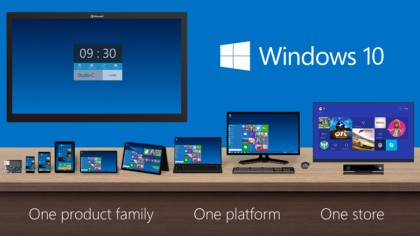
Seven shades of Windows 10
But before we get into that, let’s briefly look at the seven versions of Windows 10, far more than one would have expected in the first place. Windows 10 Home is the basic version of the OS that you’ll find on most desktops, laptops and tablets for, well, home use and offers all of the features you’ll read about after this section.
Windows 10 Pro is visually identical to Home, but offers enhanced tools for entrepreneurs, small businesses and other professional use cases; namely data protection, deeper access to cloud technologies and access to Windows Update for Business, a separate update path for enterprise users. As you might expect, Windows 10 Enterprise expands upon this with access to Microsoft’s Long Term Servicing Branch for better wide-scale deployment of the OS across mid-sized and large businesses.
Building on top of Enterprise is Windows 10 Education, designed to best serve entire school systems through Microsoft Volume Licensing with the same fleet management tools and data protection as Enterprise.
Windows 10 Mobile, which we expect to launch later this autumn, was built specifically for phones with same codebase tuned specifically for small touchscreens. This means that any Windows 10 phone can access the same universal apps built for the OS proper if developers want to allow it. There will also be an Enterprise version of Mobile designed for safer use in BYOD situations.
Finally, Windows 10 IoT Core will be a small footprint version of the OS made for smart devices, like gateways.
- Read all about Windows 10 Mobile right here
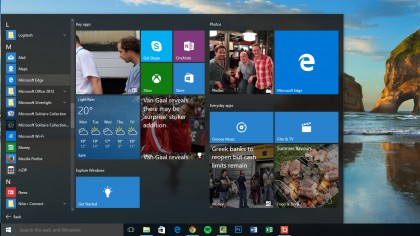
The Start menu: bigger, better, stronger
The return of the Start menu that Microsoft teased during its Build 2014 conference and detailed in full at subsequent events has been available for testing since October 2014. Replete with a merging of the traditional Windows 7-style interface and Windows 8 Live Tiles, the new Start menu is designed to please both camps: touch and mouse users.
“They don’t have to learn any new way to drive,” Belfiore said, referring to Windows 7 users during Build 2014. That said, customization will also be featured throughout, with the ability to resize the Start menu itself along with the Live Tiles within.
The Start menu features empowered search capabilities as well, able to crawl your entire machine, not to mention web results. This capability is powered through Cortana, Microsoft’s voice assistant.
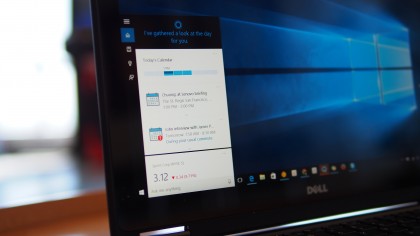
Cortana warps to the PC
That’s right, Windows 10 will see the spread of Cortana, Microsoft’s Siri and Google Now competitor, into Windows PCs and tablets in addition to phones. Microsoft’s Joe Belfiore showed off the new PC-centric features within Cortana during the company’s January reveal event, and the feature has only grown more refined through the Insider Preview.
Namely, Redmond developed PC-specific functions into Cortana for easier access to files, apps and more. Belfiore demonstrated colloquial queries like, “Show me photos from December,” to which Cortana summoned images within that time period immediately. The idea here is to make key pain points in interacting with a PC easier than before through voice.
Since then, Microsoft has gone on to discuss how Cortana is more about machine learning, or computer systems and services becoming smarter over time based on user behavior, than simply retrieving files and facts for you. In the latest Windows 10 build, Cortana can train to listen for only your voice.
Better yet, Microsoft aims to release the voice assistant to iOS and Android, the company announced recently. Heck, it’s already leaked on select Android phones.
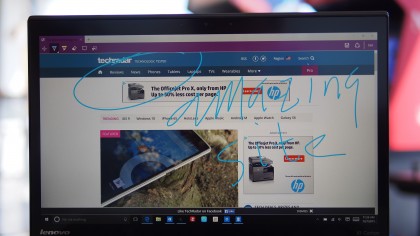
Windows gets an Edge
Formerly known as Project Spartan, the official name for the company’s new Windows 10 browser of choice is Microsoft Edge. First revealed during the company’s January 2015 event under that code name, Edge is – for all intents and purposes – the replacement for Internet Explorer we’ve all been waiting for.
Sure, IE will stick around in the rare event that Edge simply doesn’t support a legacy website, but it will never sport features like the ability to mark up webpages before sharing them with other Edge user, and comment on those same pages at the software level.
Microsoft will never say it, but the shiny new Edge browser is essentially Internet Explorer’s much-needed replacement.
Once pages are marked up with drawings and comments, that page is frozen in time with live links and open for sharing through Windows 10’s built-in sharing features. Edge will also support built-in offline reading and PDF support, not to mention Cortana.
Microsoft’s virtual assistant will be baked into Edge and pop in with recommendations and help based on your browser behavior. Belfiore in particular demoed a scenario in which a user is en route to a flight. Upon opening the browser to find flight data, Cortana will pop in with that info before the user even needs to look it up.
One major feature that will not be found in Edge at launch is extension support, something that still separates Microsoft from its competitors in this space: Google Chrome and Mozilla Firefox. But, when it finally arrives, Edge will be able to work with Chrome extensions with little work on your end – neat!
- Check our hands on impressions of Microsoft Edge from Build 2015
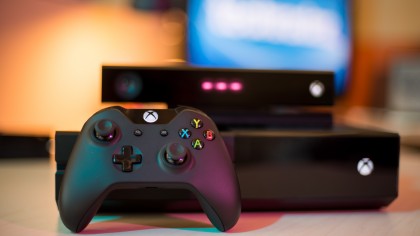
Windows 10 and Xbox unite
Microsoft’s Xbox lead Phil Spencer took the stage during Microsoft’s big January 2015 event, detailing the Xbox app on Windows 10. The app collects all games played on any Xbox One or Windows 10 device, a universal friends list and an activity feed. Every Windows 10 device will have the Xbox app pre-loaded, and you can test it out in the Insider Preview.
In fact, as of July 17, the app now supports game streaming. What this means is that you can stream any Xbox One game to your PC over your home network and play with an Xbox 360 or Xbox One controller.
Now that Xbox One games can stream to Windows 10 PCs, Microsoft is toying with enabling the reverse – think about that.
Users can also record game sessions through the Game DVR tool and share them across the Xbox network. Essentially, Windows 10 will bring the automated recording featured in Xbox One to games played on Windows 10 – even those launched through other apps, like Steam.
During that January event and later displays of Windows 10, Spencer and crew have shown that you can play certain games, like Fable Legends, through a Windows 10 PC and an Xbox One with friends at the same time. Cross-platform multiplayer gaming is coming to Xbox One and Windows 10.
Back at GDC 2015, the Xbox chief let loose even more details regarding the increasingly intimate relationship between Windows 10 and Xbox One. For starters, Spencer revealed that soon all wireless Xbox One accessories will work on Windows 10 PCs.
Later during that same show, we learned that Microsoft is “investigating the possibility” of streaming PC games to Xbox One. Currently, Microsoft is only committed to allowing the inverse, for all Xbox One games to stream to Windows 10 PCs.
- Here’s a deeper look at the best bits of Windows 10 invading Xbox and vice versa
Dan Grabham and Désiré Athow contributed to this article
Related Posts
December 6, 2021
7+ Web Design Trends for 2022: Which Will You Use?
December 6, 2021
The 10 Best WordPress Booking Plugins to Use On Your Website
December 6, 2021
How to Use a Web Cache Viewer to View a Cached Page
November 6, 2021
10 Modern Web Design Trends for 2022
November 6, 2021
Best Free SSL Certificate Providers (+ How to Get Started)
November 6, 2021
How to Design a Landing Page That Sends Conversions Skyrocketing
November 6, 2021
What Are the Best WordPress Security Plugins for your Website?
October 6, 2021
Your Guide to How to Buy a Domain Name
October 6, 2021
How to Build a WordPress Website: 9 Steps to Build Your Site
September 6, 2021
10 Best Websites for Downloading Free PSD Files
September 6, 2021
HTML5 Template: A Basic Code Template to Start Your Next Project
September 6, 2021
How Much Does It Cost to Build a Website for a Small Business?
September 6, 2021
A List of Free Public CDNs for Web Developers
September 6, 2021
6 Advanced JavaScript Concepts You Should Know
August 6, 2021
10 Simple Tips for Launching a Website
August 6, 2021
25 Beautiful Examples of “Coming Soon” Pages
August 6, 2021
10 Useful Responsive Design Testing Tools
August 6, 2021
Best-Converting Shopify Themes: 4 Best Shopify Themes
July 6, 2021
What Is Alt Text and Why Should You Use It?
July 6, 2021
24 Must-Know Graphic Design Terms
June 6, 2021
How to Design a Product Page: 6 Pro Design Tips
April 6, 2021
A Beginner’s Guide to Competitor Website Analysis
April 6, 2021
6 BigCommerce Design Tips For Big Ecommerce Results
April 6, 2021
Is WordPress Good for Ecommerce? [Pros and Cons]
March 6, 2021
Make Websites Mobile-Friendly: 5 Astounding Tips
March 6, 2021
Shopify vs. Magento: Which Platform Should I Use?
March 6, 2021
Top 5 Web Design Tools & Software Applications
February 6, 2021
Website Optimization Checklist: Your Go-To Guide to SEO
February 6, 2021
5 UX Design Trends to Dazzle Users in 2021
February 6, 2021
What Is the Average Page Load Time and How Can You Do Better?
February 6, 2021
Choosing an Ecommerce Platform That Will Wow Customers
February 6, 2021
7 Best Practices for Crafting Landing Pages with Forms
February 6, 2021
7 B2B Web Design Tips to Craft an Eye-Catching Website
January 6, 2021
Mobile-Friendly Checker | Check Your Site’s Mobile Score Now
January 6, 2021
8 Tips for Developing a Fantastic Mobile-Friendly Website
December 6, 2020
How to Add an Online Store to Your Website [4 Ways]
December 6, 2020
5 UX Design Tips for Seamless Online Shopping
November 6, 2020
Ecommerce Website Essentials: Does Your Site Have All 11?
November 6, 2020
5 Small Business Website Essentials You Need for Your Site
November 6, 2020
Your Website Redesign Checklist for 2020: 7 Steps for Success
May 1, 2020
Psychology of Color [Infographic]
April 21, 2020
How to start an online store that drives huge sales
January 3, 2020
5 Lead Generation Website Design Best Practices
March 6, 2019
6 Reasons You Should Redesign Your Website in 2019
March 6, 2019
7 Web Design Trends for 2019
February 19, 2019
Who owns the website/app source code, client or developer
February 7, 2019
Don’t Let Your Domain Names Expire in 2019
January 8, 2019
2019 Website Development Trends To Note
October 6, 2017
How Web Design Impacts Content Marketing
October 6, 2017
How to Choose a Navigation Setup
August 6, 2017
Why User Experience Matters to Marketing
July 6, 2017
5 Ways Web Design Impacts Customer Experience
September 6, 2016
How to Learn Angular
September 6, 2016
The Excuses for Not Having a Website (Infographic)
September 6, 2016
How to Build an Award-Winning Web Design Team
September 6, 2016
13 Free Data Visualization Tools
August 6, 2016
How Selling Pastries Helped Us Design a Better Product
August 6, 2016
11 Sites to Help You Find Material Design Inspiration
July 4, 2016
How to change free wordpress.com url
April 6, 2016
The 5 Best Free FTP Clients
April 6, 2016
7 Free UX E-Books Worth Reading
March 6, 2016
Can Handwritten Letters Get You More Clients?
December 10, 2015
Star Wars Week: How to create your own Star Wars effects for free
December 6, 2015
20 "Coming Soon" Pages for Inspiration
December 6, 2015
6 Free Tools for Creating Your Own Icon Font
December 6, 2015
9 Useful Tools for Creating Material Design Color Palettes
November 6, 2015
20 Free UI Kits to Download
November 6, 2015
50 Web Designs with Awesome Typography
November 6, 2015
When to Use rel="nofollow"
November 6, 2015
7 Free Books That Will Help You Become More Productive
November 6, 2015
50 Beautiful One-Page Websites for Inspiration
November 6, 2015
Circular Images with CSS
October 6, 2015
Lessons Learned from an Unsuccessful Kickstarter
October 6, 2015
5 Games That Teach You How to Code
October 6, 2015
Cheatsheet: Photoshop Keyboard Shortcuts
October 6, 2015
An Easy Way to Create a Freelance Contract for Your Projects
October 6, 2015
50 Design Agency Websites for Inspiration
September 29, 2015
JB Hi-Fi shutting the book on ebooks
September 24, 2015
Opinion: Quick, Quickflix: It's time to give yourself the flick
September 24, 2015
New Star Wars 360-degree video is among first on Facebook
September 21, 2015
Apple purges malicious iPhone and iPad apps from App Store
September 12, 2015
Apple's new Live Photos feature will eat up your storage
September 12, 2015
The latest Windows 10 Mobile preview has been delayed
September 12, 2015
IBM buys StrongLoop to add Node.js development to its cloud
September 8, 2015
Fake Android porn app takes your photo, then holds it ransom
September 6, 2015
50 Restaurant Websites for Inspiration
September 6, 2015
Zero UI — The Future of Interfaces
September 6, 2015
50 Beautiful Websites with Big Background Images
September 6, 2015
Infographic: 69 Web Design Tips
September 6, 2015
Free Windows 10 Icons
September 2, 2015
Instagram turns itself into a genuine messaging service
August 11, 2015
In Depth: How Microsoft taught Cortana to be more human
August 11, 2015
Windows 10's broken update introduces endless reboot loop
August 11, 2015
Windows 10 races to 27m installs
August 11, 2015
Windows 10 IoT Core gets first public release
August 10, 2015
iOS Tips: How to backup iPhone to an external drive
August 10, 2015
Windows 8.1 RT finally getting Windows 10 Start Menu
August 10, 2015
How to use Windows Hello
August 10, 2015
Review: Moto Surround
August 10, 2015
Review: Moto G (2015)
August 9, 2015
8 of the best free VPN services
August 8, 2015
Use Firefox? Mozilla urges you update ASAP
August 7, 2015
Mac Tips: Apple Mail: How to remove the Favorites Bar
August 7, 2015
How to make the OS X dock appear faster
August 7, 2015
Review: BQ Aquaris E45 Ubuntu Edition
August 7, 2015
Review: Acer Liquid Jade Z
August 6, 2015
How to reinstall Linux
August 6, 2015
How to reinstall Windows
August 6, 2015
Updated: Apple Music: release date, price and features
August 6, 2015
Social News Websites for Front-End Developers
August 6, 2015
10 Free JavaScript Books
August 6, 2015
50 Beautiful Blog Designs
August 6, 2015
Animated SVG Pipes Effect
August 6, 2015
Launching Your First App
August 5, 2015
Windows 10 goes freemium with paid apps
August 5, 2015
Updated: Week 1 with Windows 10
August 5, 2015
Mac Tips: How to manage Safari notifications on Mac
August 5, 2015
Microsoft Sway may kill the PowerPoint presentation
August 4, 2015
Microsoft gives Outlook on the web a new look
August 4, 2015
Mac OS X vulnerable to new zero-day attack
August 4, 2015
Windows 10 users warned of two scams
August 4, 2015
Microsoft's Docs.com is now available to everyone
August 3, 2015
Mac Tips: How to edit the Favorites sidebar on Mac
August 3, 2015
Updated: Windows 10 price, news and features
July 29, 2015
Review: HP ProDesk 405 G2
July 29, 2015
Hands-on review: HP Elite x2 1011
July 29, 2015
Hands-on review: Updated: Windows 10 Mobile
July 29, 2015
Review: Updated: Nvidia Shield Android TV
July 28, 2015
LIVE: Windows 10 launch: Live Blog!
July 28, 2015
How to prepare for your upgrade to Windows 10
July 28, 2015
Review: Updated: Windows 10
July 28, 2015
Review: Updated: HP Pro Tablet 608
July 28, 2015
Review: Heat Genius
July 28, 2015
Hands-on review: Moto X Play
July 28, 2015
Hands-on review: Moto X Style
July 28, 2015
Hands-on review: Moto G (2015)
July 28, 2015
Review: 13-inch MacBook Air (early 2015)
July 28, 2015
Hands-on review: OnePlus 2
July 28, 2015
Review: LG 65EG960T 4K OLED
July 28, 2015
Mac Tips: How to share printers on Mac
July 27, 2015
Apple Music's arrival hasn't opened Pandora's box
July 26, 2015
Review: Garmin Swim
July 25, 2015
How to merge OS X contacts into an existing list
July 25, 2015
Hands-on review: UPDATED: ZTE Axon
July 24, 2015
Mac Tips: How to zoom in on a Mac
July 24, 2015
What Windows 10 means for the enterprise
July 24, 2015
Review: JBL Charge 2 Plus
July 24, 2015
Review: Acer Aspire S7
July 24, 2015
Review: Updated: Canon G3 X
July 24, 2015
Review: Updated: iPad Air 2
July 24, 2015
Review: Thinksound On1
July 24, 2015
Review: Asus Chromebook Flip
July 24, 2015
Review: Garmin Forerunner 225
July 23, 2015
Review: Garmin nuvi 68LM
July 23, 2015
Review: Samsung Galaxy S6 Active
July 23, 2015
Review: Bowers and Wilkins P5 Wireless
July 23, 2015
Review: Dell XPS 15 (2015)
July 21, 2015
Review: Fuji S9900W
July 21, 2015
Review: Updated: Fitbit Surge
July 21, 2015
Review: UE Roll
July 21, 2015
Hands-on review: Ubik Uno
July 20, 2015
Review: Samsung HW-J650
July 20, 2015
Updated: 40 best Android Wear smartwatch apps 2015
July 20, 2015
Review: Acer Chromebook C740 review
July 20, 2015
Review: Huawei Talkband B2
July 20, 2015
Review: Dell Venue 10 7000
July 20, 2015
Review: Intel Core i7-5775C
July 17, 2015
Mac Tips: How to delete locked files on Mac
July 17, 2015
Review: Pebble Time
July 16, 2015
Microsoft just made Windows XP even less secure
July 16, 2015
Windows 8.1 RT is getting an update this September
July 16, 2015
OS showdown: Windows 10 vs Windows 8.1 vs Windows 7
July 16, 2015
Review: Acer CB280HK
July 15, 2015
Windows 10 is ready for new laptops and PCs
July 15, 2015
Explained: How to take a screenshot in Windows
July 15, 2015
Office for Windows 10 appears in latest build
July 14, 2015
Review: ZTE Axon
July 14, 2015
Review: ViewSonic VP2780-4K
July 14, 2015
Hands-on review: SanDisk Connect Wireless Stick
July 14, 2015
Review: Oppo PM-3
July 14, 2015
Review: BT 11ac Dual-Band Wi-Fi Extender 1200
July 14, 2015
Review: Fuji X-T10
July 13, 2015
How to build an SEO strategy for your business
July 13, 2015
Review: Lenovo ThinkPad Yoga 15
July 13, 2015
Review: Audio-Technica ATH-MSR7
July 13, 2015
Review: Garmin NuviCam LMT-D
July 13, 2015
Review: Dell Inspiron 13 7000
July 13, 2015
Hands-on review: AstroPi SenseHAT
July 13, 2015
Hands-on review: EE Rook
July 13, 2015
Hands-on review: Updated: HTC Vive
July 12, 2015
Here's the ultimate software list for PC fanatics
July 10, 2015
How to use the new Photos app for Mac
July 10, 2015
Windows 10 Insider Preview Build 10166 available now
July 10, 2015
Splunk spends big on cybersecurity acquisition
July 10, 2015
Making Windows 10 apps just got a whole lot easier
July 10, 2015
Review: Lenovo LaVie Z 360
July 9, 2015
OS X El Capitan public beta available right now
July 9, 2015
Microsoft finally unveils Office 2016 for Mac
July 9, 2015
Review: Updated: Chromecast
July 9, 2015
Review: Updated: Tesco Hudl 2
July 9, 2015
Review: Lenovo ThinkPad E550
July 9, 2015
Review: Updated: Google Nexus 6
July 8, 2015
What you need to know about Windows Server 2016
July 7, 2015
Microsoft to hike enterprise cloud pricing
July 6, 2015
Hacking Team end up being totally 0wned
July 6, 2015
Review: HP Pro Slate 12
July 6, 2015
Review: Samsung 850 Pro 2TB
July 6, 2015
Review: Asus RT-AC87U
July 6, 2015
Review: Jawbone UP2
July 6, 2015
Reimagining the Web Design Process
July 6, 2015
50 Clean Websites for Inspiration
July 6, 2015
15 Free Books for People Who Code
July 6, 2015
Web Storage: A Primer
July 6, 2015
A Look at Some CSS Methodologies
July 3, 2015
6 Essential Mac Mouse and Trackpad Tips
July 2, 2015
How to install a third party keyboard on Android
July 2, 2015
Review: UPDATED: Asus Zenfone 2
July 2, 2015
Review: Alienware 13
July 2, 2015
Review: HP DeskJet 1010
July 1, 2015
5 issues we want Apple Music to fix
June 13, 2015
Cortana will get its own button on Windows 10 PCs
June 12, 2015
Windows 10 will come with universal Skype app
June 12, 2015
iPad music production: 18 Best apps and gear
June 12, 2015
Windows 10 all set for early enterprise struggle
June 12, 2015
Review: Garmin VIRB Elite
June 11, 2015
Review: Updated: Nvidia Shield Tablet
June 11, 2015
Review: Nokia Lumia 635
June 10, 2015
Microsoft brings more online tweaks to Office 365
June 10, 2015
Mac Tips: How to use Screen Sharing in Mac OS X
June 9, 2015
Hands-on review: Meizu M2 Note
June 9, 2015
Hands-on review: EE 4GEE Action Camera
June 9, 2015
Review: Toshiba 3TB Canvio external hard drive
June 9, 2015
Review: Olympus SH-2
June 8, 2015
Hands-on review: Updated: Apple CarPlay
June 8, 2015
UPDATED: iOS 9 release date, features and news
June 8, 2015
Review: Updated: Roku 2
June 8, 2015
Review: Updated: PlayStation Vue
June 8, 2015
Review: Dell PowerEdge R730
June 8, 2015
Review: Canon SX710 HS
June 7, 2015
UPDATED: iOS 9 release date, features and rumors
June 7, 2015
Review: Lenovo S20-30
June 6, 2015
Free Writing Icons
June 6, 2015
15 CSS Questions to Test Your Knowledge
June 6, 2015
The Best CSS Reset Stylesheets
June 6, 2015
How CSS Specificity Works
June 5, 2015
'Delay' is a new feature in Windows 10
June 5, 2015
Review: Beyerdynamic Custom One Pro Plus
June 5, 2015
Latest SEO Marketing tools
June 5, 2015
Review: Nvidia Shield Android TV
June 5, 2015
Review: Honor 4X
June 5, 2015
Review: In Depth: Oppo R5
June 3, 2015
Hands-on review: Huawei P8 Lite
June 3, 2015
How To: How to create eBooks on a Mac
June 3, 2015
Review: Updated: Tidal
June 3, 2015
Review: Canon 750D (Rebel T6i)
June 2, 2015
Review: Updated: Asus ZenWatch
June 2, 2015
Review: Alcatel OneTouch Idol 3
June 2, 2015
Review: Updated: Nokia Lumia 1520
June 2, 2015
Review: Updated: Yotaphone 2
June 2, 2015
Review: Updated: Nokia Lumia 625
June 2, 2015
Review: Creative Muvo Mini
June 1, 2015
Review: Acer TravelMate P645 (2015)
June 1, 2015
Hands-on review: Corsair Bulldog
May 29, 2015
In Depth: NetApp: a requiem
May 29, 2015
July is looking definite for Windows 10 release
May 29, 2015
Hands-on review: Google Photos
May 28, 2015
Mac Tips: The 16 best free GarageBand plugins
May 28, 2015
Review: Canon 760D (Rebel T6s)
May 27, 2015
Review: Lenovo Yoga 3 14
May 27, 2015
Hands-on review: Serif Affinity Photo
May 27, 2015
Review: Garmin Vivoactive
May 26, 2015
Review: Datacolor Spyder5 Elite
May 26, 2015
Hands-on review: Sony Xperia Z3+
May 26, 2015
Review: Epson BrightLink Pro 1410Wi
May 26, 2015
Review: Technics Premium C700
May 26, 2015
Review: Canon EOS M3
May 26, 2015
Review: Updated: HTC One M9
May 26, 2015
Review: Updated: Sony Xperia Z3 Compact
May 25, 2015
Review: Updated: New Nintendo 3DS
May 25, 2015
Updated: 50 best Mac tips, tricks and timesavers
May 25, 2015
Updated: Windows email: 5 best free clients
May 25, 2015
Instagram is planning to invade your inbox
May 25, 2015
Review: Updated: Foxtel Play
May 24, 2015
How Windows 10 will change smartphones forever
May 24, 2015
Review: Vodafone Smart Prime 6
May 24, 2015
Review: Updated: iPad mini
May 22, 2015
Office Now may be Cortana for your work life
May 22, 2015
Review: Updated: Lenovo Yoga 3 Pro
May 22, 2015
Review: Microsoft Lumia 640 LTE
May 22, 2015
Review: Updated: Fitbit Flex
May 21, 2015
Updated: Best free Android apps 2015
May 21, 2015
Review: Asus ZenBook Pro UX501
May 21, 2015
Review: Sennheiser Momentum In-Ear
May 20, 2015
Hands-on review: UPDATED: Asus Zenfone 2
May 20, 2015
OS X 10.11 release date, features and rumors
May 18, 2015
Updated: Best free antivirus software 2015
May 18, 2015
iPhone 6S rumored to launch as soon as August
May 18, 2015
Microsoft ready to pounce and acquire IFS?
May 17, 2015
5 of the most popular Linux gaming distros
May 16, 2015
Review: Acer Chromebook 15 C910
May 16, 2015
Review: Lenovo ThinkPad X1 Carbon (2015)
May 16, 2015
Review: Polk Nue Voe
May 16, 2015
The top 10 data breaches of the past 12 months
May 16, 2015
Hands-on review: Updated: LG G4
May 16, 2015
Review: Updated: Quickflix
May 16, 2015
Review: LG Watch Urbane
May 16, 2015
Review: Razer Nabu X
May 16, 2015
Hands-on review: Updated: Windows 10
May 16, 2015
Review: UPDATED: Moto X
May 16, 2015
Review: Updated: Moto G (2013)
May 12, 2015
Review: TomTom Go 50
May 12, 2015
Review: Updated: Moto G (2014)
May 12, 2015
Review: Garmin Vivofit 2
May 12, 2015
Review: Asus Transformer Book Flip TP300LA
May 11, 2015
Review: MSI GT80 Titan
May 11, 2015
Review: Monster SuperStar BackFloat
May 9, 2015
Review: Updated: Apple Watch
May 7, 2015
5 million internet users infected by adware
May 7, 2015
Review: Updated: New MacBook 2015
May 6, 2015
Android M will be shown at Google IO 2015
May 6, 2015
Review: Epson WorkForce Pro WF-4630
May 6, 2015
Review: Master & Dynamic MH40
May 6, 2015
How to Use Gulp
May 6, 2015
Getting Started with Command-Line Interfaces
May 6, 2015
What It’s Like to Contribute to WordPress
May 6, 2015
Ultimate Guide to Link Types for Hyperlinks
May 6, 2015
11 Things You Might Not Know About jQuery
May 5, 2015
Hands-on review: Updated: PlayStation Now
May 5, 2015
Review: Lenovo ThinkPad Yoga 12
May 5, 2015
Review: Updated: iPad Air
May 5, 2015
Review: Panasonic SZ10
May 5, 2015
Review: Updated: Fetch TV
May 4, 2015
Review: Cambridge Audio Go V2
May 3, 2015
Review: Lightroom CC/Lightroom 6
May 2, 2015
5 of the most popular Raspberry Pi distros
May 1, 2015
Review: PlayStation Vue
May 1, 2015
Hands-on review: Updated: Microsoft HoloLens
April 30, 2015
Build 2015: Why Windows 10 may not arrive until fall
April 29, 2015
The biggest announcements from Microsoft Build 2015
April 29, 2015
Hands-on review: TomTom Bandit
April 29, 2015
Hands-on review: EE Harrier Mini
April 28, 2015
Review: Samsung NX500
April 28, 2015
Hands-on review: LG G4
April 28, 2015
Review: Patriot Ignite 480GB SSD
April 28, 2015
Hands-on review: EE Harrier
April 28, 2015
Review: Linx 10
April 28, 2015
Review: 1&1 Cloud Server
April 26, 2015
Hands-on review: Acer Iconia One 8
April 25, 2015
How to run Windows on a Mac with Boot Camp
April 24, 2015
Dropbox Notes poised to challenge Google Docs at launch
April 24, 2015
Hands-on review: Acer Aspire E14
April 24, 2015
Hands-on review: UPDATED: Valve Steam Controller
April 24, 2015
Review: Acer Iconia One 7
April 23, 2015
Windows 10 just revived everyone's favorite PC game
April 23, 2015
Google opens up Chromebooks to competitors
April 23, 2015
Here's how Outlook 2016 looks on Windows 10
April 23, 2015
Hands-on review: Updated: Acer Liquid M220
April 23, 2015
Hands-on review: Acer Aspire Switch 10 (2015)
April 23, 2015
Hands-on review: Acer Aspire R 11
April 22, 2015
Review: Alienware 17 (2015)
April 22, 2015
Hands-on review: Updated: HP Pavilion 15 (2015)
April 21, 2015
This is how Windows 10 will arrive on your PC
April 21, 2015
Review: iMac with Retina 5K display
April 21, 2015
Review: Epson XP-420 All-in-One
April 18, 2015
Google Now brings better search to Chrome OS
April 17, 2015
Review: Epson Moverio BT-200
April 17, 2015
Review: Pentax K-S2
April 16, 2015
Updated: Android Lollipop 5.0 update: when can I get it?
April 15, 2015
Hands-on review: Updated: Huawei P8
April 15, 2015
Review: SanDisk Ultra Dual USB Drive 3.0
April 15, 2015
Review: Updated: LG G3
April 15, 2015
Review: Updated: LG G3
April 15, 2015
Review: Crucial BX100 1TB
April 13, 2015
iOS 8.4 beta reveals complete Music app overhaul
April 13, 2015
Linux 4.0: little fanfare for a tiny new release
April 13, 2015
Achievement unlocked: Microsoft gamifies Windows 10
April 13, 2015
Best Android Wear smartwatch apps 2015
April 13, 2015
Review: Acer Aspire R13
April 12, 2015
Review: TP-Link Archer D9
April 10, 2015
Microsoft's new browser arrives for Windows 10 phones
April 10, 2015
Review: LG UltraWide 34UC97
April 9, 2015
Office now integrates with Dropbox on the web
April 9, 2015
Now you can buy video games with Apple Pay
April 9, 2015
Updated: iOS 8 features and updates
April 9, 2015
Microsoft's stripped down Nano Server is on the way
April 8, 2015
Skype Translator gets even more features
April 8, 2015
Windows mail services hit by widespread outages
April 8, 2015
Review: UPDATED: Amazon Echo
April 8, 2015
Hands-on review: Dell Venue 10 7000
April 8, 2015
Review: Updated: OS X 10.10 Yosemite
April 7, 2015
Google's GMeet could kill teleconferencing
April 7, 2015
Is Redstone the first Windows 10 update?
April 7, 2015
Next peek at Windows Server 2016 due next month
April 7, 2015
Review: Acer Aspire Switch 11
April 7, 2015
Review: Adobe Document Cloud
April 6, 2015
Hands-on review: Updated: New MacBook 2015
April 6, 2015
Freebie: 100 Awesome App Icons
April 6, 2015
Six Revisions Quarterly Report #1
April 6, 2015
A Modern Approach to Improving Website Speed
April 6, 2015
Disable Text Selection with CSS
April 4, 2015
Review: Nikon D7200
April 3, 2015
Amazon Prime video now streams to any Android tablet
April 3, 2015
Review: Google Cardboard
April 3, 2015
Review: MSI WS60
April 2, 2015
Chrome users can now run 1.3 million Android apps
April 2, 2015
See Windows 10 Mobile running on an Android handset
April 2, 2015
Review: Mini review: Macphun Noiseless Pro 1.0
April 2, 2015
Review: Intel SSD 750 Series 1.2TB
April 2, 2015
Review: BenQ TreVolo
April 2, 2015
Hands-on review: Nikon 1 J5
April 1, 2015
Microsoft launches Windows 10 music and video apps
April 1, 2015
Review: mini review: Sony XBA-H1
December 19, 2014
Review: CoPilot Premium sat nav app
December 19, 2014




